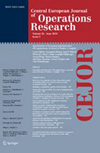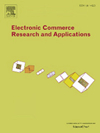期刊简介
The idea underlying the journal, Group Decision and Negotiation, emerges from evolving, unifying approaches to group decision and negotiation processes. These processes are complex and self-organizing involving multiplayer, multicriteria, ill-structured, evolving, dynamic problems. Approaches include (1) computer group decision and negotiation support systems (GDNSS), (2) artificial intelligence and management science, (3) applied game theory, experiment and social choice, and (4) cognitive/behavioral sciences in group decision and negotiation. A number of research studies combine two or more of these fields. The journal provides a publication vehicle for theoretical and empirical research, and real-world applications and case studies. In defining the domain of group decision and negotiation, the term `group' is interpreted to comprise all multiplayer contexts. Thus, organizational decision support systems providing organization-wide support are included. Group decision and negotiation refers to the whole process or flow of activities relevant to group decision and negotiation, not only to the final choice itself, e.g. scanning, communication and information sharing, problem definition (representation) and evolution, alternative generation and social-emotional interaction. Descriptive, normative and design viewpoints are of interest. Thus, Group Decision and Negotiation deals broadly with relation and coordination in group processes. Areas of application include intraorganizational coordination (as in operations management and integrated design, production, finance, marketing and distribution, e.g. as in new products and global coordination), computer supported collaborative work, labor-management negotiations, interorganizational negotiations, (business, government and nonprofits -- e.g. joint ventures), international (intercultural) negotiations, environmental negotiations, etc. The journal also covers developments of software f or group decision and negotiation.
该期刊的基本理念,即群体决策和谈判,源于不断发展的、统一的群体决策和谈判过程方法。这些过程是复杂的和自组织的,涉及多人、多标准、结构不良、不断发展的动态问题。方法包括 (1) 计算机群体决策和谈判支持系统 (GDNSS),(2) 人工智能和管理科学,(3) 应用博弈论、实验和社会选择,以及 (4) 群体决策和谈判中的认知/行为科学.许多研究结合了这些领域中的两个或多个。该期刊为理论和实证研究以及实际应用和案例研究提供了出版工具。在定义群体决策和协商的领域时,术语“群体”被解释为包括所有多人游戏环境。因此,包括提供组织范围支持的组织决策支持系统。群决策和协商是指与群决策和协商相关的活动的整个过程或流程,而不仅仅是最终选择本身,例如:扫描、交流和信息共享、问题定义(表示)和演变、替代生成和社会情感互动。描述性的、规范的和设计的观点很有趣。因此,群体决策和谈判广泛地处理群体过程中的关系和协调。应用领域包括组织内部协调(如运营管理和综合设计、生产、财务、营销和分销,例如新产品和全球协调)、计算机支持的协作工作、劳资谈判、组织间谈判、(商业、政府)和非营利组织——例如合资企业)、国际(跨文化)谈判、环境谈判等。该期刊还涵盖了用于群体决策和谈判的软件开发。
《GROUP DECISION AND NEGOTIATION》期刊已被查看: 次









